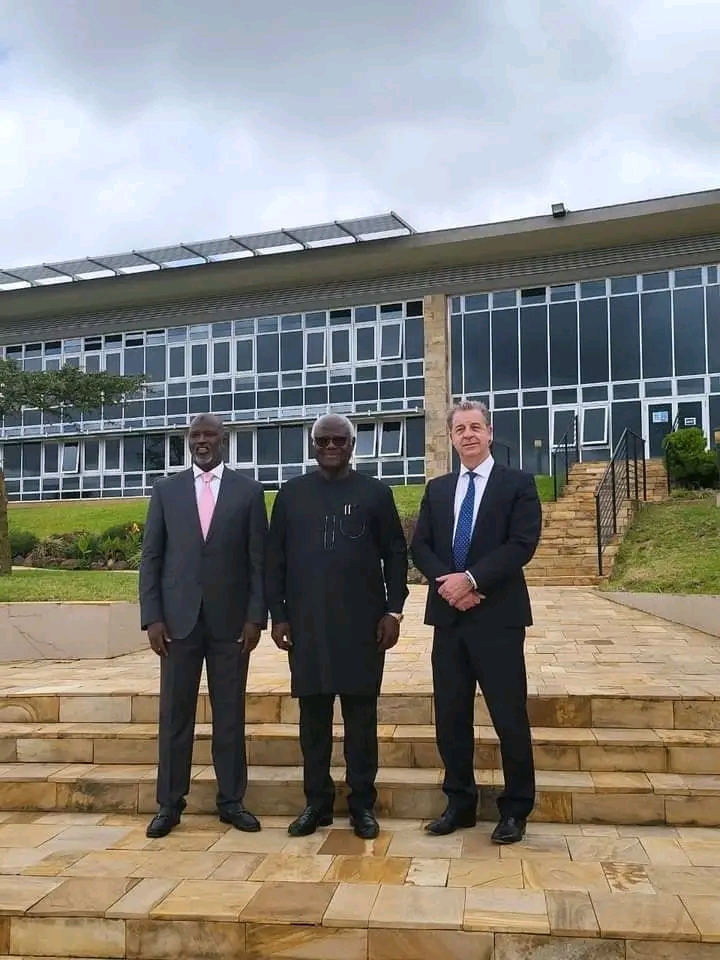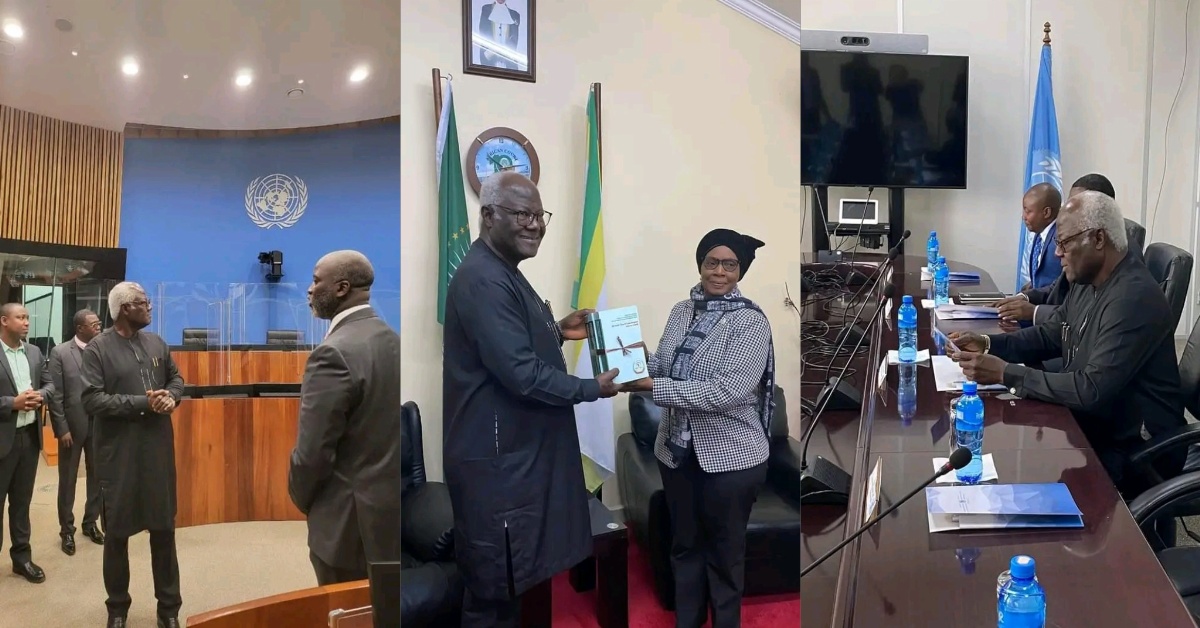Sierra Leone’s former President, Ernest Bai Koroma, has on Thursday 21 July 2022, commended the African Court on Human and Peoples’ Rights (ACHPR) and urged the continent to support its exceptional work in promoting and protecting human rights across Africa.
“A worthy cause for the dignity and stability of Africa… and the critical work they do deserves support”, Koroma said in a tweet.
The Sierra Leonean statesman made the statement during his visit to the ACHPR on Thursday.
Receiving former President Koroma and his entourage, Her Excellency Imani Doub Aboud, the President of the Court, expressed appreciation to her esteemed guest, noting that he was the first former president to ever visit the court.
“It is important to note that you are the first former President to visit the African Court since it was operationalized some 16 years ago. We therefore are very grateful for your interest not only in the African Court but in the protection of human rights as a whole”, said President Aboud.
According to her, President Koroma’s visit did not come as a surprise at all.
“Your visit to the Court is not a surprise. The African Court and indeed the entire African human rights community have witnessed the significant strides made under your personal leadership towards human rights and rule of law, peacebuilding and peace consolidation efforts, fighting corruption, strengthening democratic good governance, and improving economic stability in your country and Africa as a whole,”
Her Excellency Aboud went on to explain that the African Court was the judicial arm of the African Union with the mandate to protect human and peoples’ rights in Africa.

She further stated that the Court was established by virtue of Article 1 of the Protocol to the African Charter on Human and Peoples’ Rights on the Establishment of an African Court on Human and Peoples’ Rights (the Protocol). She recalled that “the Protocol was adopted in June 1998 and came into force in January 2004, and lamented the slow ratification of its protocol and deposition of declaration.
“Out of 55 Member States only 33 have ratified the Protocol and only eight State Parties have deposited the declaration that allows individuals and NGOs to bring cases directly to the Court.”
The President Aboud however expressed optimism that President Koroma’s visit could rekindle interest in the court, saying that its success as a human rights protection mechanism requires a wider ratification of the Protocol by Member States, as well as their acceptance of the competence of the Court by making the Declaration.
“I will serve as an ambassador of this honourable Court and I will do my best to canvass support for its work,” assured the Sierra Leonean statesman.
In a similar engagement, former President Koroma also made time to visit the United Nations International Residual Mechanism for Criminal Tribunals (IRMCT). Mr Aboubakrr Marie Tambadou, former Minister of Justice of the Gambia, who is the Registrar of the IRMCT, re-echoed President Aboud’s sentiments about President Koroma’s commitment to the course of peace, democracy and human rights and the rule of law.
“I’m not surprised that you made time to come knowing your commitment to peace, democracy, human rights and the rule of law.”
Mr Tambadou, a citizen of The Gambia used the opportunity to express gratitude to former President Koroma for his role in Gambia’s peaceful elections last December.
“I thank you for your extraordinary effort in making sure that we had a peaceful electoral outcome in The Gambia. Your role in particular was truly commendable and I would like to reiterate my gratitude for saving The Gambia when we thought things were going out of hands.” A visibly proud Tambadou then turned to the Prosecutor of the Court, Serge Bramertz, and said: “I am so proud of him because he is among the few African leaders who left power honourably at the end of his constitutional two terms”.
Bramertz was also pleased that several years after the Tribunals were official closed, leaders like former President Koroma still recognized the value of the Residual Court.
“We are extremely pleased for leaders like you who still see value in the work we do. Our work encompasses the residual work from the former Yugoslavia and that from Rwanda. We are both in The Hague and here in Arusha.”
The Prosecutor further stated that the actual Rwandan Tribunal ceased to be functional few years ago but there are up to eight indictees who are still at large. Speaking further about the Court’s residual work, the Prosecutor explained that one of the fugitives was indicted in 1997, but was arrested only two years ago. He also said that another has been located in Southern Africa. Bramertz further stated that overall, there were about 1,400 pending arrests and that the suspects are scattered throughout Africa, Europe and Australia. “This goes to say how long it can take for justice to be served.”
“It is really my pleasure to be here and I thank you most profoundly for the warm reception you have accorded me”, responded former President Koroma.
The statesman said that it was important for the Court to continue with its critical job of serving justice and providing deterrent against such human rights abuses.
“Never again should the atrocities committed in the former Yugoslavia and Rwanda be ever committed anywhere in the world; we should all do whatever it takes to canvass support for your great work,” he emphasized.



 Post a comment
Post a comment 









